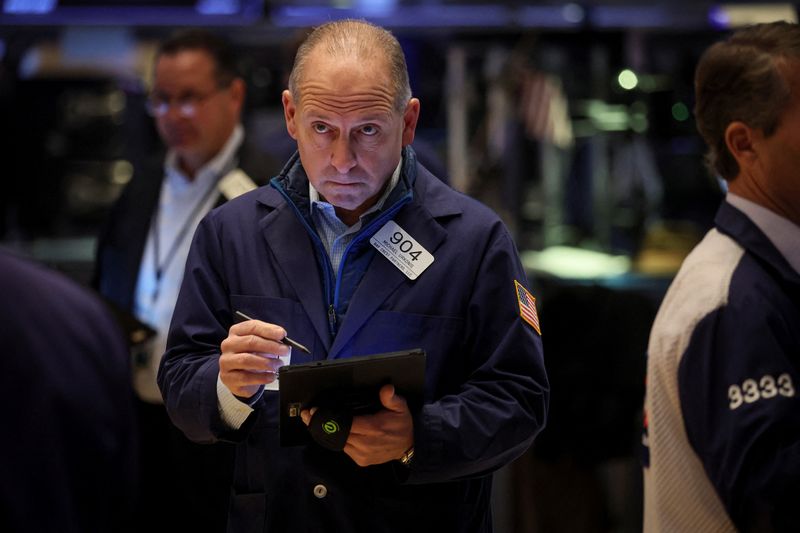Investing.com -- The past two years have delivered stronger-than-expected economic growth and market performance, with both the US and euro area surpassing initial forecasts.
Equities rallied, credit spreads tightened, and volatility remained subdued. However, Deutsche Bank (ETR:DBKGn) notes that this success has raised the bar for a repeat performance in 2025.
Growth expectations now set a higher benchmark. Bloomberg consensus forecasts project 2025 GDP growth at 2.1% for the US and 1.2% for the euro area, significantly above initial predictions for 2023 and 2024. Avoiding a recession no longer provides the positive surprise it once did, with recession probabilities having declined over recent years.
“After all, fears of a hard landing have receded, and consensus growth expectations for the US and the Euro Area are stronger than they were at this point before 2023 or 2024,” Deutsche Bank macro strategist Henry Allen said in a note.
Market pricing also reflects an optimistic outlook, with expectations of 55 basis points in Federal Reserve rate cuts and 141 basis points from the European Central Bank by mid-2025. Allen notes that these adjustments are already embedded in valuations, reducing their potential as market catalysts.
Moreover, as central banks approach neutral policy stances, further rate cuts would typically require a substantial economic shock.
Inflation expectations, a critical driver in prior periods, are now firmly anchored around central bank targets. US forward inflation swaps, for instance, stood at 2.44% in late 2024, down from 2.57% a year earlier, while the Euro Area equivalent was 1.99%.
“Inflation staying broadly around target isn't going to be treated as a major positive surprise, not least given rate cuts are already priced in,” Allen writes.
Lastly, valuations pose another challenge for 2025 outperformance. The S&P 500’s consecutive 20% gains in 2023 and 2024 leave it at levels historically associated with corrections, such as the dot-com bubble.
Credit spreads, particularly in high-yield bonds, have also tightened to near-record lows, limiting further room for compression.
The report concludes that, while markets benefited from economic resilience and unexpected growth over the past two years, these dynamics make it harder to replicate such a display.
“With rate cuts and subdued inflation already priced in, these aren’t going to act as positive catalysts in and of themselves. And with valuations now increasingly elevated across several asset classes, that makes the scope for further gains more limited.”
“As such, getting another outperformance like we saw in 2023 or 2024 is going to be a lot harder in 2025,” Allen concluded.
